Thomas Eric Duncan: First Ebola death in U.S.
By Greg Botelho and Jacque Wilson, CNN, Re-posted by Abdulgafar Abdulrauf Adio (www.econsforumnews.blogspot.com)
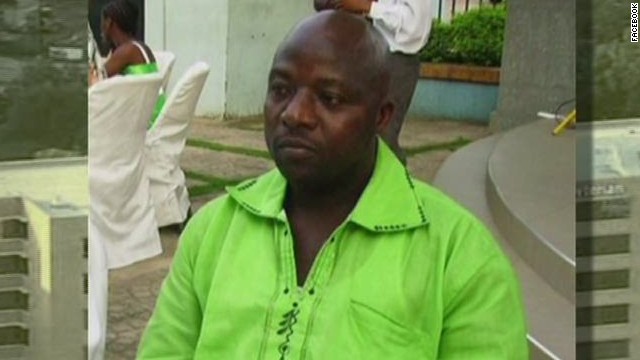 (CNN) -- Thomas Eric Duncan left Liberia for the
United States, by official accounts, a healthy man. Just over two weeks
later, he passed away at a Dallas, Texas, hospital with Ebola.
(CNN) -- Thomas Eric Duncan left Liberia for the
United States, by official accounts, a healthy man. Just over two weeks
later, he passed away at a Dallas, Texas, hospital with Ebola.
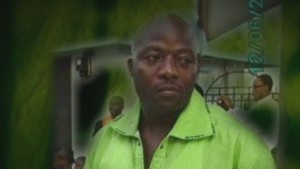
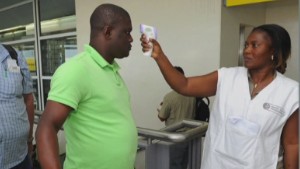
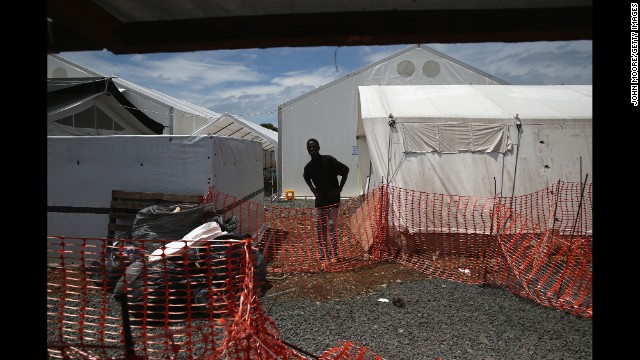 Photos: Ebola outbreak in West Africa
Photos: Ebola outbreak in West Africa
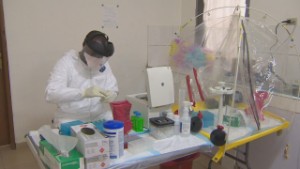
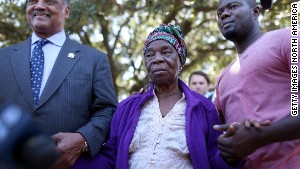
 (CNN) -- Thomas Eric Duncan left Liberia for the
United States, by official accounts, a healthy man. Just over two weeks
later, he passed away at a Dallas, Texas, hospital with Ebola.
(CNN) -- Thomas Eric Duncan left Liberia for the
United States, by official accounts, a healthy man. Just over two weeks
later, he passed away at a Dallas, Texas, hospital with Ebola.
Duncan was admitted into
isolation at Texas Health Presbyterian Hospital on September 28 with
common symptoms of Ebola: fever, vomiting and diarrhea. He later tested
positive for the virus that has killed more than 3,400 people in West
Africa.
He was started on the
experimental drug brincidofovir on October 4 -- far too long after he
arrived at the hospital, his family has said. On Tuesday, the hospital
reported that Duncan was on a ventilator and his kidneys were failing.
Duncan died on Wednesday at 7:51 a.m.

Partner of victim: 'His suffering is over'
"His suffering is over,"
his partner Louise Troh said in a statement. "My family is in deep
sadness and grief, but we leave him in the hands of God. Our deepest
sympathies go out to his father and family in Liberia and here in
America. Eric was a wonderful man who showed compassion toward all."

U.S. to check travelers for fevers
 Photos: Ebola outbreak in West Africa
Photos: Ebola outbreak in West Africa

U.S. Ebola labs open in Liberia

Jackson meets Ebola patient's family
Who was Duncan, besides the first person to be diagnosed with Ebola in the United States? When did he start to feel sick, and why couldn't the U.S. health care system save him?
"The past week has been
an enormous test of our health system, but for one family it has been
far more personal," Dr. David Lakey, commissioner of the Texas
Department of State Health Services, said in a statement. "The doctors,
nurses and staff at Presbyterian provided excellent and compassionate
care, but Ebola is a disease that attacks the body in many ways. We'll
continue every effort to contain the spread of the virus and protect
people from this threat."
Who was Thomas Eric Duncan?
He was a 42-year-old
Liberian citizen. Duncan's Facebook page indicates that he's from the
Liberian capital of Monrovia, where he attended E. Jonathan Goodridge
High School.
Why did he come to the United States?
To visit family and
friends. Duncan was visiting his son and his son's mother in Dallas,
according to Wilfred Smallwood, Duncan's half-brother, who noted this
was Duncan's first trip to America.
When did Duncan leave Liberia?
He departed the West African nation on September 19, CDC Director Dr. Thomas Frieden says.
How did he get Ebola?
Health authorities haven't said.
Witnesses say Duncan had
been helping Ebola patients in Liberia. Liberian community leader
Tugbeh Chieh Tugbeh said Duncan was caring for an Ebola-infected patient
at a residence in Paynesville City, just outside Monrovia.
The New York Times reported
that Duncan had direct contact with a pregnant woman stricken with
Ebola on September 15, days before he left for the United States. Citing
the woman's parents and Duncan's neighbors in Monrovia, Liberia, the
newspaper said Duncan had helped carry the ailing woman home after a
hospital turned her away because there wasn't enough space in its Ebola
treatment ward.
Was he screened for Ebola before getting on the plane?
Yes, according to Binyah Kesselly, board chairman of the Liberia Airport Authority.
"The first screening was
at the gate, before you get to the parking lot. The second time is
before you enter the terminal building and the third is before you board
the flight. At every point your temperature is scanned."
His temperature at those
checkpoints was a consistent 97.3 degrees Fahrenheit, Centers for
Disease Control and Prevention chief Thomas Frieden told reporters
Thursday.
Yet on a health
screening questionnaire, Duncan answered "no" to questions about whether
he had cared for a patient with the deadly virus and whether he had
touched the body of someone who died in an area affected by the disease,
Kesselly said.
When did his Ebola symptoms appear?
"Four or five days" after his trip, according to the CDC's Frieden.
This doesn't mean that
Duncan actually got infected with Ebola in the United States. The
incubation period for the virus is 2 to 21 days, meaning that a person
could be infected with the disease for up to three weeks before showing
any signs of it.
When he did seek medical help?
Duncan first walked into Texas Health Presbyterian Hospital Dallas after 10 p.m. on September 25.
Smallwood reports Duncan
had a fever and was vomiting during this first visit to the Dallas
hospital. The hospital, in a statement, said he had a "low grade fever
and abdominal pain."
He underwent basic blood
tests but wasn't screened for Ebola, said Dr. Edward Goodman from the
Dallas hospital. Duncan left the medical facility after being given
antibiotics and a pain reliever, his friend said.
"His condition did not warrant admission," the hospital said. "He also was not exhibiting symptoms specific to Ebola."
Were flags raised that Duncan might have Ebola?
After being asked by a
nurse, Duncan did say that he'd traveled from Africa, said Dr. Mark
Lester, executive vice president of Texas Health Presbyterian's parent
company.
But that detail -- which
might have raised an alarm that Duncan might have Ebola, since Liberia
is one of the countries hardest hit by the virus -- was not "fully
communicated" to the medical team, according to Lester.
When was he admitted to Texas Health Presbyterian Hospital?
On September 28. By the
time Duncan arrived via ambulance, "EMS had already identified potential
need for isolation," the hospital said.
What treatment did he receive?
Duncan was given
supportive therapy -- meaning fluids and other therapies that would help
support his immune system while it was trying to fight off the virus.
He was also started on the experimental anti-viral drug brincidofovir on
October 4.
Since the drugs being
used to treat Ebola are still experimental, it is up to each individual
hospital to file the paperwork with the Food and Drug Administration for
permission to get the drug from the manufacturer and use it.
The hospital has declined to tell CNN when they filed for permission to the FDA to use brincidofovir.
"The care team has been
consulting with the CDC and Emory, on a daily basis since Mr. Duncan was
admitted to the hospital, discussing the possible course of treatment,
including the use of investigational drugs," hospital spokesman Wendell
Watson said in a statement.
Duncan was not given a
blood transfusion with blood donated by an Ebola survivor, as Ebola
patients Dr. Rick Sacra and Ashoka Mukpo were given in Nebraska.
Why did he die?
The other Ebola patients
brought to the United States for treatment are still alive. Three have
been released from the hospital and one is reportedly in stable
condition at The Nebraska Medical Center. So what's different about
Duncan?
As Lakey said, Ebola
attacks the body in many ways. Experts estimate the current outbreak in
West Africa has around a 71% fatality rate. Supportive therapy can help,
but there are no proven cures for the disease.
Duncan did not start
receiving treatment until several days after he started experiencing
symptoms, which may have contributed to his rapid decline.
What will happen to his body?
An Ebola patient's body
is still highly infectious. Any contact with the bodily fluids could
result in transmission of the virus. "Only personnel trained in handling
infected human remains, and wearing PPE (personal protective
equipment), should touch, or move, any Ebola-infected remains," CDC
guidelines state. "Autopsies on patients who die of Ebola should be
avoided."
Duncan's body will be
enclosed in two bags and the bags will be disinfected for
transportation, Texas health officials say. Then the body will be
cremated.










0 comments:
Post a Comment